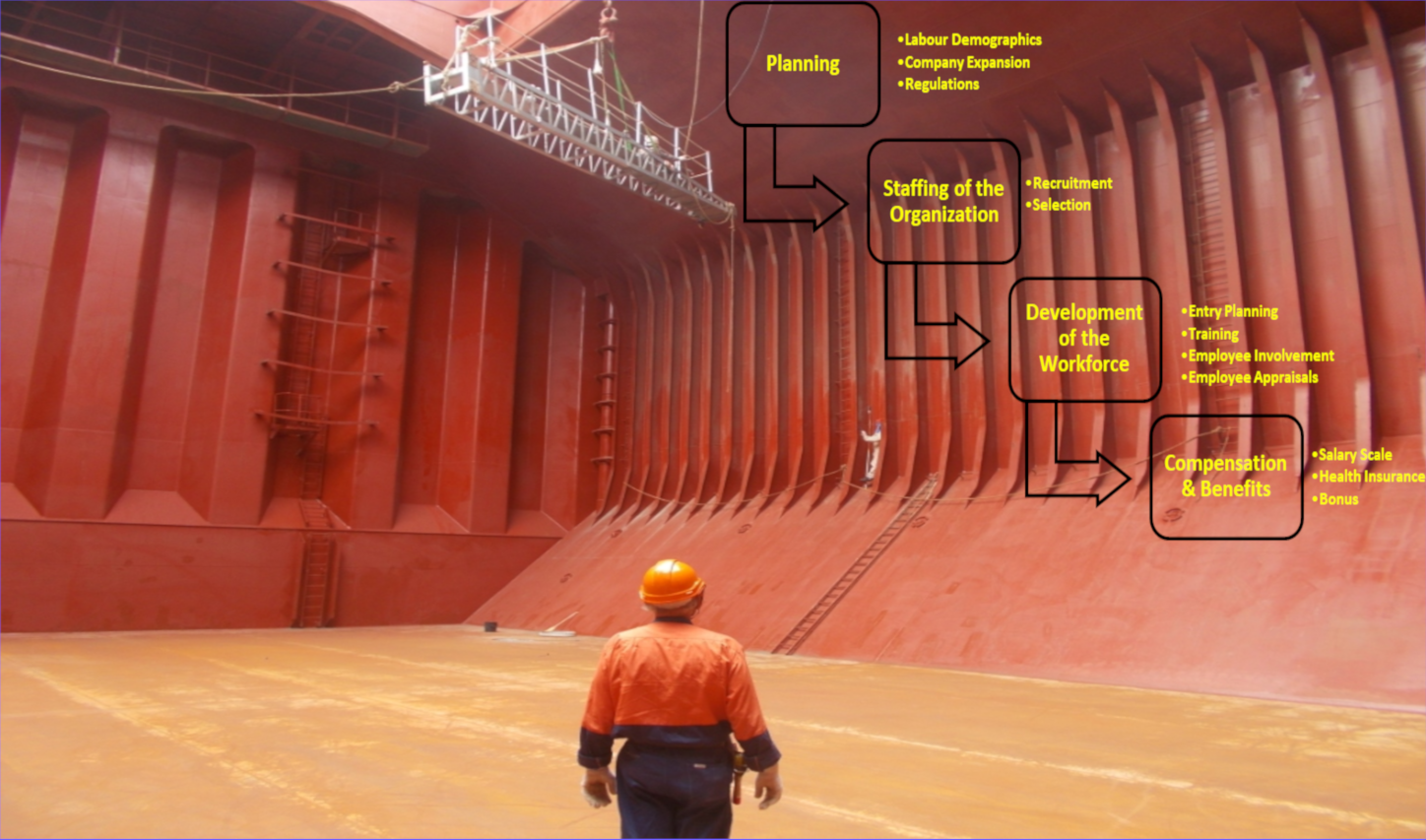Several times ship managers are confused why outstanding employees quit. This is due to wrong job design leading to wrong selection, eg overqualified employee. Here are some tips for assessing a job design.
1. Compensation and benefits
It is a fact that compensation is the main reason that an individual works. Therefore when it comes to money the HRM department of a company should provide a fair and transparent environment to the employees. As it was stated in recruitment process an idea of a salary should be offered in first place and a comparison table should be in the company where based on the position, experience, education and expertise a salary range should be offered. Any other practices create an untrustworthy environment between employees and the management. A tricky question to a candidate with respect to his/her salary expectations is god start for distrust with new employees hired in a company.

In a ship management company salary variation could vary significantly however transparency could significantly improve the feeling of fair payment to employees within the company. If salary is less than this offered by other companies then additional benefits should be provided. Commonly offer benefit packages include extra medical, insurance and scholarship programs. Occasionally bonus is offered as an award to a great achievement of an employee. Such bonus should be announced and explained to other employees as an example. Another bonus offer especially to seamen is about his/her loyalty with the company usually expressed with long term relationship.
2. Employment
With respect to seamen a small company will not be an attractive choice. The main reason is that they usually are employment with contracts of 7 to 10 months length. After a couple of months vacations a seaman will seek for employment. For senior ranks a small company cannot offer employment so frequently since one senior office of each capacity is employed on a ship. A smaller firm may have smaller salaries but give faster opportunities for promotion since the turnover will be significant. Consequently a small organization may serve as a training institute that promotes seamen who eventually move to larger companies when their gain skills significantly.
3. Employee Development
Another significant goal for an HRM system is the improvement of employees. Through this goal the competitiveness of each employee should be maximized through continuous support and motivation. It is expected that an employee will be more satisfied when assigned with a job suitable for them and potentials of promotions and/or awards. These conditions will establish a working environment where employees will remain for many years. Long term contracts make employees feel secured. Furthermore the costs initially spent for training and education after a long period should be considered as an investment. In contrast employees that receive training in a company where turnover is frequent is simply an expenditure.
A farther target for an HRM system is to assist a company to create its own managers. The less costly option for a company is to promote employees from its rank with significant service to a managerial position. Those managers will know every aspect of the company and will have the trust from their co-workers. Some people believe that leaders are born and some other that leaders are made. Whatever is the case a company through its HRM system should assist its employees to develop their leadership skills through continuous growth and development.
4. Good governance
In the terms of a company, it would also be useful to prove with daily practice that a reasonable human resource management system is in place. This could be achieved by providing frequent briefings to employees with respect to their role into the company. Each employee has his/her own contribution to the success or failures of the company. Furthermore, those briefings should include the completive standards for each position. Modern management systems establish measurement system for each employee. A successful company should use such systems to improve the skills of an employee.

